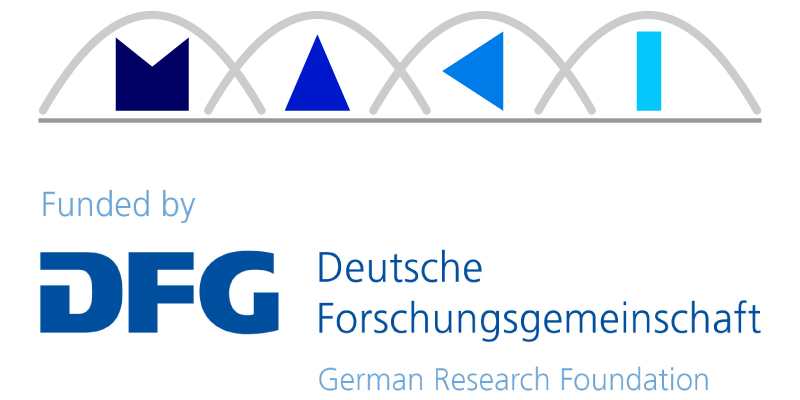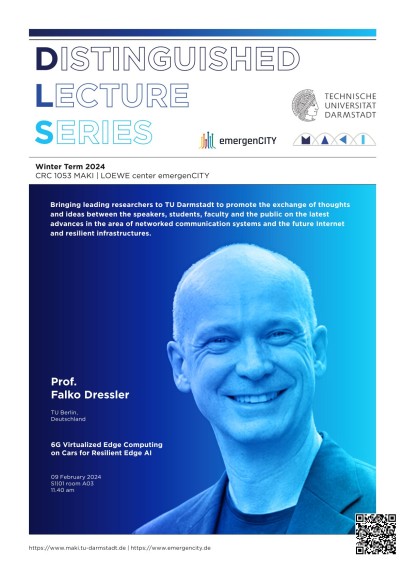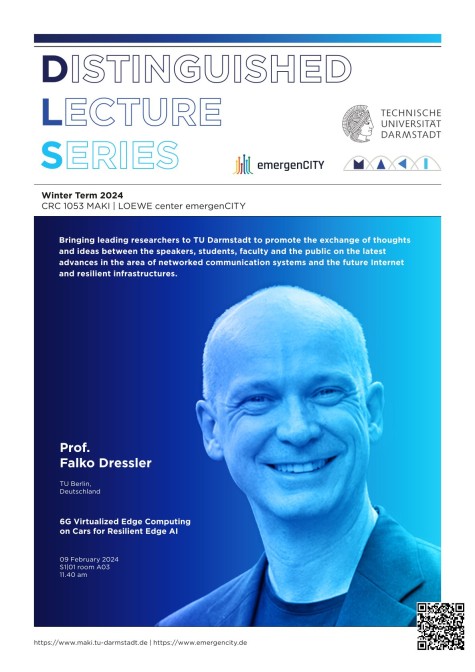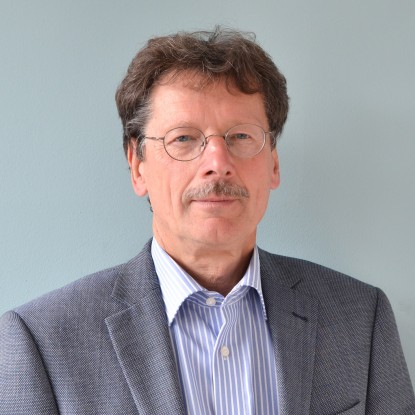Prof. Falko Dressler
Friday, 09.02.2024, 11:40 am
“6G Virtualized Edge Computing on Cars for Resilient Edge AI”
Venue: S1|01 room A03 (Audimax building)
Abstract:
As we move from 5G to 6G, edge computing is one of the concepts that needs revisiting. Its core idea is still intriguing: Instead of sending all data and tasks from an end user's device to the cloud, edge servers deployed in close proximity to the user serve as proxy for the cloud. This is particularly interesting for upcoming machine learning (ML)-based intelligent services, which require substantial computational and networking performance for continuous model training. Yet this promising idea is hampered by the limited number of such edge servers. In a parallel universe, car makers have discussed challenges and opportunities of the connected cars vision in relation to the need for distributed data management solutions ranging from the vehicle to the mobile edge and to the data centers. As a new concept, vehicle micro clouds have been proposed that bridge the gap between fully distributed vehicular networks based on short range device to device communication and 5G+ based infrastructure for centralized solutions. Taking both concepts together, we discuss a way forward, namely the virtual edge computing (V-Edge) concept. V-Edge helps bridging the gap between cloud, edge, and fog by virtualizing all available resources including the end users' devices and making these resources widely available. Thus, V-Edge acts as an enabler for novel microservices as well as cooperative computing solutions in next-generation networks. We introduce the general V-Edge architecture, and we characterize some of the key research challenges to overcome, to enable wide-spread and intelligent edge services.
Bio:
Falko Dressler is full professor and Chair for Telecommunication Networks at the School of Electrical Engineering and Computer Science, TU Berlin. He received his M.Sc. and Ph.D. degrees from the Dept. of Computer Science, University of Erlangen in 1998 and 2003, respectively. Dr. Dressler has been associate editor-in-chief for IEEE Trans. on Mobile Computing and Elsevier Computer Communications as well as an editor for journals such as IEEE/ACM Trans. on Networking, IEEE Trans. on Network Science and Engineering, Elsevier Ad Hoc Networks, and Elsevier Nano Communication Networks. He has been chairing conferences such as IEEE INFOCOM, ACM MobiSys, ACM MobiHoc, IEEE VNC, IEEE GLOBECOM. He authored the textbooks Self-Organization in Sensor and Actor Networks published by Wiley & Sons and Vehicular Networking published by Cambridge University Press. He has been an IEEE Distinguished Lecturer as well as an ACM Distinguished Speaker. Dr. Dressler is an IEEE Fellow as well as an ACM Distinguished Member. He is a member of the German National Academy of Science and Engineering (acatech). He has been serving on the IEEE COMSOC Conference Council and the ACM SIGMOBILE Executive Committee. His research objectives include adaptive wireless networking (sub-6GHz, mmWave, visible light, molecular communication) and wireless-based sensing with applications in ad hoc and sensor networks, the Internet of Things, and Cyber-Physical Systems.





